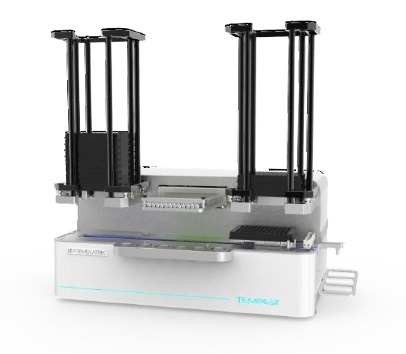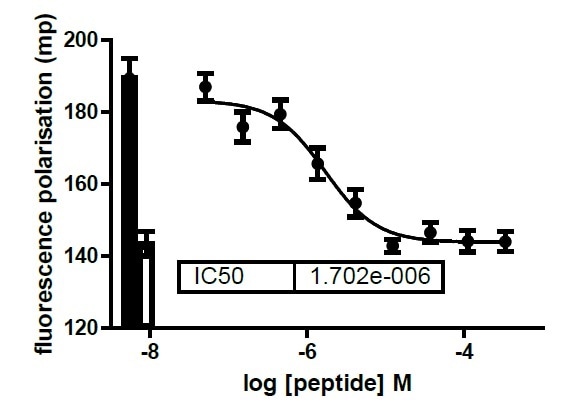Partnerships between industry and academia have allowed for better targeted and more cost effective approaches to drug discovery. Thanks to this close collaboration, academic institutes worldwide have gained access to compound libraries that contain data on hundreds of thousands of compounds.
Highly variable projects and budget limitations have driven the need for cost effective and user friendly tools designed to facilitate effective assay development and screening.
These projects must also be run according to industry standards, and, in order to maintain the viability of any drug discovery process, automation of high-throughput screens must be reproducible.
This article explores the use of the TEMPEST® - an adaptable, user friendly microfluidic reagent dispenser that has been specifically designed to execute both assay development and high-throughput screens in miniaturized assay volumes.
The instrument can lower assay reagent costs by 60%, while provided high quality screening data.
The Drug Discovery Group at UCL have established that it is possible to perform a hit confirmation run of 12,000 concentration response curves using only 1.6 µL total reaction volumes, when this process is automated via the TEMPEST® liquid handler.
This has resulted in a cost reduction of £26,000 GBP in detection reagent, compared to previous approaches to liquid handling.
Materials
- Labcyte Echo Liquid Handler
- Hidex Sense Plate Reader
- FORMULATRIX® TEMPEST® Liquid Handler
- 375x 384-well plates
Methods
The reaction volume was miniaturized to 1.6 µl from 4 µl, due to the decision to use the TEMPEST® Liquid Handler. This allowed the detection reagent volume to be reduced from 12 µl to 4.8 µl, with no resulting increase in error or assay window loss.
The assay’s fidelity was ascertained by using concentration response curves of an activating peptide. The data was viewed using a Hidex Sense Plate Reader before being analyzed with a Genedata Screener and Graphpad Prism.

Figure 1. FORMUATRIX® TEMPEST® Liquid Handler. Image Credit: Formulatrix
Results
The main purpose for reducing dispense volume was the resulting reduction in detection reagent costs for the screen. For this screen of 12,000 compounds alone, using a 10 point concentration response curve, an almost one third reduction in the volume of detection reagent saved £26,000 GBP.
No reduction in assay fidelity was anticipated, though it was confirmed that utilizing the TEMPEST® Liquid Handler actually reduced error in the assay, improving the robust Z` from 0.3 in a pilot study to 0.66 for the 375 plate screen.

Figure 2. Positive Control Compound Concentration Response. Image Credit: Formulatrix
Conclusion
Collaborations between industry and academia have enabled academics access to large compound libraries which require cost-effective, easy to use liquid handling to screen. As can be seen in the example above, use of the TEMPEST® Liquid Handler enabled a one third reduction in the volume of a hit confirmation screen, saving £26,000 GBP for the 375 plate screen. This screen also saw an improvement in data quality, with a healthy Z` of 0.66 throughout the screen.
The ease of use afforded by the TEMPEST® Liquid Handler makes it an ideal solution for a multi-user laboratory, as well as being highly beneficial for scientists with only limited experience of automated liquid handling solutions.
Acknowledgments
This work was carried out by Dr. Trevor Askwith of the Translational Research Office at UCL.
About FORMULATRIX
FORMULATRIX® was established in 2002 to provide protein crystallization automation solutions. Since then, we've started developing other laboratory automation solutions including the next generation of liquid handlers using microfluidic technology.
Headquartered in Bedford, Massachusetts, we supply software and robotic automation solutions to leading pharmaceutical companies and academic research institutions around the world. Our team works tirelessly to provide the best products in the industry with support that is second to none.
Sponsored Content Policy: News-Medical.net publishes articles and related content that may be derived from sources where we have existing commercial relationships, provided such content adds value to the core editorial ethos of News-Medical.Net which is to educate and inform site visitors interested in medical research, science, medical devices and treatments.